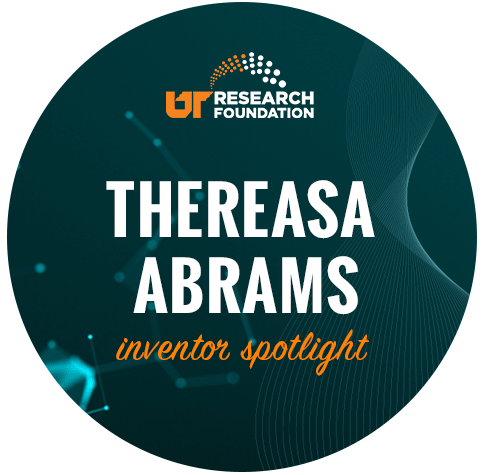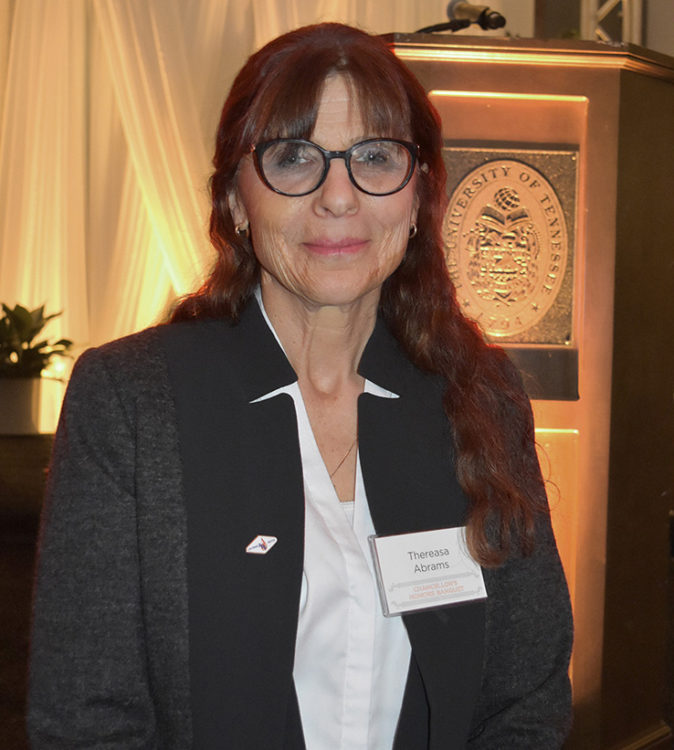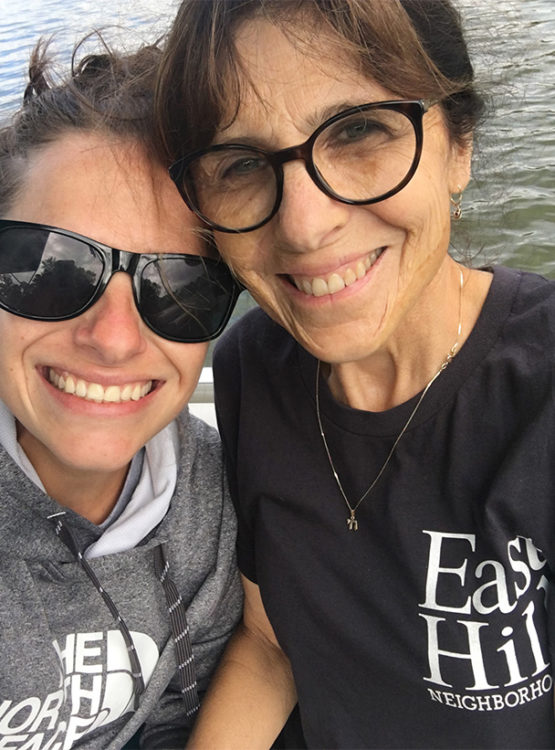 Improving outcomes for burn patients and the standing of social workers on burn center teams.
Improving outcomes for burn patients and the standing of social workers on burn center teams.
An estimated 486,000 burn injuries require medical treatment every year – 40,000 of which require hospitalization, according to the American Burn Association. Around 30,000 of these hospitalizations are treated by medical professionals with specialized burn care training at any of the 128 burn centers around the country.
Thereasa Abrams, an assistant professor of social work at the University of Tennessee, Knoxville, is seeking to improve outcomes for burn survivors through her research and a new healthcare app. In her own words, “burns are painful and damage the body in a way that cannot be remedied. They require a change in the way people live their lives and in their self-image.”
Thereasa’s research interests focus on burn patients and how social workers might better meet the needs of survivors in underserved regions of the country. Currently, much of her work centers around the development of a healthcare app, the Bridge Mobile App for Burn Patients.

The app is designed to provide recently discharged burn patients with easily accessible instructional materials and positive messages that aid psychosocial rehabilitation. In describing the benefits of her app, Thereasa pointed to the scarcity of burn centers in rural communities throughout the country and an overrepresentation of burns in low-income populations. Some patients never return to burn centers for treatment due to financial challenges. With the app, patients can receive proper guidance to aid recovery without having to return to a medical center.
Part of Thereasa’s passion for her work with burn patients and survivors stems from her personal background; she draws on her own experience to help others facing similar challenges.
“I was burned when I was six years old and there were no psychosocial services available for me or my family,” Thereasa said. “I didn’t meet another burn survivor until I was almost 30 years old. At times, it felt very isolating being different growing up. I don’t want anyone to go through that alone.”
As a young adult, Thereasa discovered the importance of access to psychosocial rehabilitation tools; beginning with the Phoenix Society for Burn Survivors, she became involved in burn survivor support groups in the Midwest. She started meeting with burn patients regularly and eventually founded a burn survivor support group at Strong Memorial Hospital while living in Rochester, New York.
After volunteering with burn patients and survivors for years, Thereasa decided to enter the field of social work. She pursued her bachelor’s and master’s degrees in social work, practicing as a clinical social worker for over a decade before she decided to take the next step and pursue her doctorate.

“I went back to school because I wanted to conduct research to improve outcomes for burn survivors,” she said. “To learn what we can do to improve their care once they return to their community. To help them reintegrate and develop a new, normal life and feel good about themselves. To become self-sufficient.”
Now at UT, Thereasa continues to advocate for burn patients and share her passion with both students and collogues, even those outside her field. In working to develop her app, she’s collaborated with Knoxville campus researchers from engineering, nursing, the school of design, and kinesiology, recreation, and sport studies. UTRF has supported Thereasa with resources and awarded a Maturation Grant in 2017 to further develop this app.
“Thereasa is a brilliant innovator who is incredibly passionate about her work with burn survivors and patients,” Vice President of UTRF Maha Krishnamurthy said. “UTRF is looking forward to widespread use of the Bridge Mobile App to assist burn patients.”
In addition to her work with the app, Thereasa’s research also seeks to improve the standing of social workers on interdisciplinary burn center teams across the country and promote more commonality in the training they receive during their education. She explains that many physicians and nurses at burn center units don’t consider social workers as part of the core team because they are frequently dedicated to other departments in their hospital as well. Her research looks at what these social workers do, how to better prepare students to understand the uniqueness of medical social work, and how to help patients recover psychosocially from medical trauma.